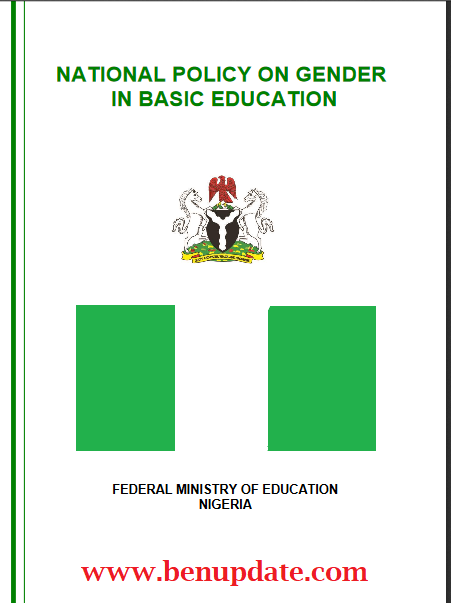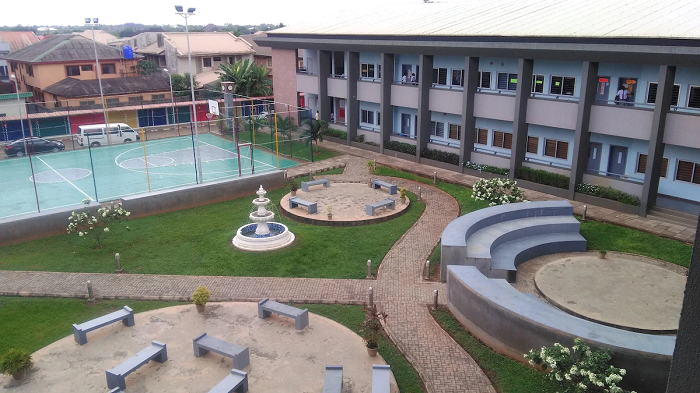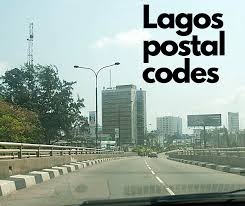National Policy on Education in Nigeria
National Policy on Education in Nigeria. The National Policy on Education is anchored on Nigeria’s philosophy on education as enunciated through the nation’s objectives. Nigeria has five main national objectives as provided by the Second National Development Plan and accepted as the necessary foundation for the National Policy on Education.

The National Policy on Education (NPE) in Nigeria is the followed national guideline for the effective management, administration and implementation of education at all tiers of government. There has been significant revolution in the education sector in Nigeria and there definitely needs to be national policy reforms to align with the current trend(s) in the sector to ensure proper and efficient execution of the Board of Education’s guidelines and regulations. The National Policy on Education in Nigeria is a statement of the government’s regulations, anticipations, expectations, goals, requirements and standards for quality education delivery in Nigeria.
Like most other developing countries, Nigeria is undergoing rapid economic, social and political reforms. Some thirty years ago, the Nigerian education sector could be said to be manual-driven but fast forward to some technological advancements and national policy reforms later, there’s the electronic or automatic-driven system of education in Nigeria with the e-Books, e-Classrooms, e-Libraries and even e-Exams. The latest reform on the national policy on education in Nigeria included changes and innovations like:
- Open and Distance Learning Programme by the Government which was resumed after the suspension was ended.
- Expansion and revitalization of the NMC (National Mathematical Centre).
- Teachers Registration Council (TRC) was established.
- Information and Communication Technology (ICT) was instructed to be included into the school curriculum as a second official language.
- To ensure balance and unbiased opportunity and effective implementation of the Universal Basic Education (UBE); the inclusion of basic education into the scheme of Quaranic schools was instructed.
- Simultaneous teaching of science, technical and vocational education in the scheme of national educational for complete student capacity and optimum performance.
- General contextual change to reflect the state of professional practice in education.
National policy on Education is government’s way of actualizing that part of the national goals which education can be used as a tool to achieve. However, before the national policy can be compiled and structured out, the overall philosophy and goals of the nation must first be identified. Some important and vital parts of the current national policy on education are listed below.
- Education would continue to rank high in the nation’s development plans. Education is the most important instrument of change and any fundamental change in the social and intellectual outlook of any society has to be preceded by education.
- Expansion would continue to affect education and training facilities, in response to social needs and education would be made accessible and affordable.
- Educational activities would be centred on the student for maximum self-development and self-fulfilment.
- Depending on needs and possibilities, Universal Basic Education (UBE) shall be provided in a variety of forms for all citizens.
- Educational evaluation and evaluation shall be liberalized by being based in part on continuous assessment of the progress of the student/individual.
- At all levels of the education system, modern education techniques shall be increasingly used and would also be improved upon.
- Physical and health education shall be emphasized at all levels of the education system.
- The national educational system shall be structured to develop the practice of self-learning. Government shall in this regard continue to encourage the establishment of Young Readers Clubs in schools.
In the absence of the national policy, there would be very insignificant revolution and very minute growth in nation’s educational sector. Reforms and re-strategizing is also an important part of the national policy on education in Nigeria since it allows the policy to adjust and reshape to meet present expectations, demands and current technological trends in the country.
What is the meaning of national policy on education?
The National Policy on Education (NPE) is a policy formulated by the Government of India to promote education amongst India’s people. The policy covers elementary education to colleges in both rural and urban India.
What is the new national policy on education?
1986. Having announced that a new policy was in development in January, 1985, the government of Prime Minister Rajiv Gandhi introduced a new National Policy on Education in May, 1986. … The policy expanded the open university system with the Indira Gandhi National Open University, which had been created in 1985.
What is the standard of education in Nigeria?
According to Nigeria’s latest National Policy on Education (2004), basic education covers nine years of formal (compulsory) schooling consisting of six years of elementary and three years of junior secondary education. Post-basic education includes three years of senior secondary education.
What is the 9 3 4 system of education in Nigeria?
The current education system is 9-3-4 called Universal Basic Education (UBE) implies that every child spend the first 9-years of basic and compulsory education up to the Junior Secondary School (JSS-3) level, another 3 years in the senior secondary school, and 4-years in the tertiary institutions (27)(28) (29).
What are the three types of education in Nigeria?
Nigeria’s education system encompasses three different sectors: basic education (nine years), post-basic/senior secondary education (three years), and tertiary education (four to six years, depending on the program of study).
What are national goals of education?
To promote the social, economic, technological and industrial needs for national development: Education should prepare the youth of the country to play an effective and productive role in the life of the nation.
Who is the founder of education in Nigeria?
Western or formal education was started in Nigeria in 1842 — only at the primary level — by the Christian missionaries who managed the educational system according to their respective philosophies. The missionary organizations available then were the Chord missionary society, the Wesleyan Methodist, and he Catholic.
We Believe This Article Was Helpful, Don’t Hesitate To Share This Information With Your Friends On Facebook, Twitter, Whatsapp and Google plus.
Copyright Warning: Contents on this website may not be republished, reproduced, redistributed either in whole or in part without due permission or acknowledgement. All contents are protected by DMCA.
The content on this site is posted with good intentions. If you own this content & believe your copyright was violated or infringed, make sure you contact us via This Means to file a complaint & actions will be taken immediately.




Why is there no Author Name, and published date?